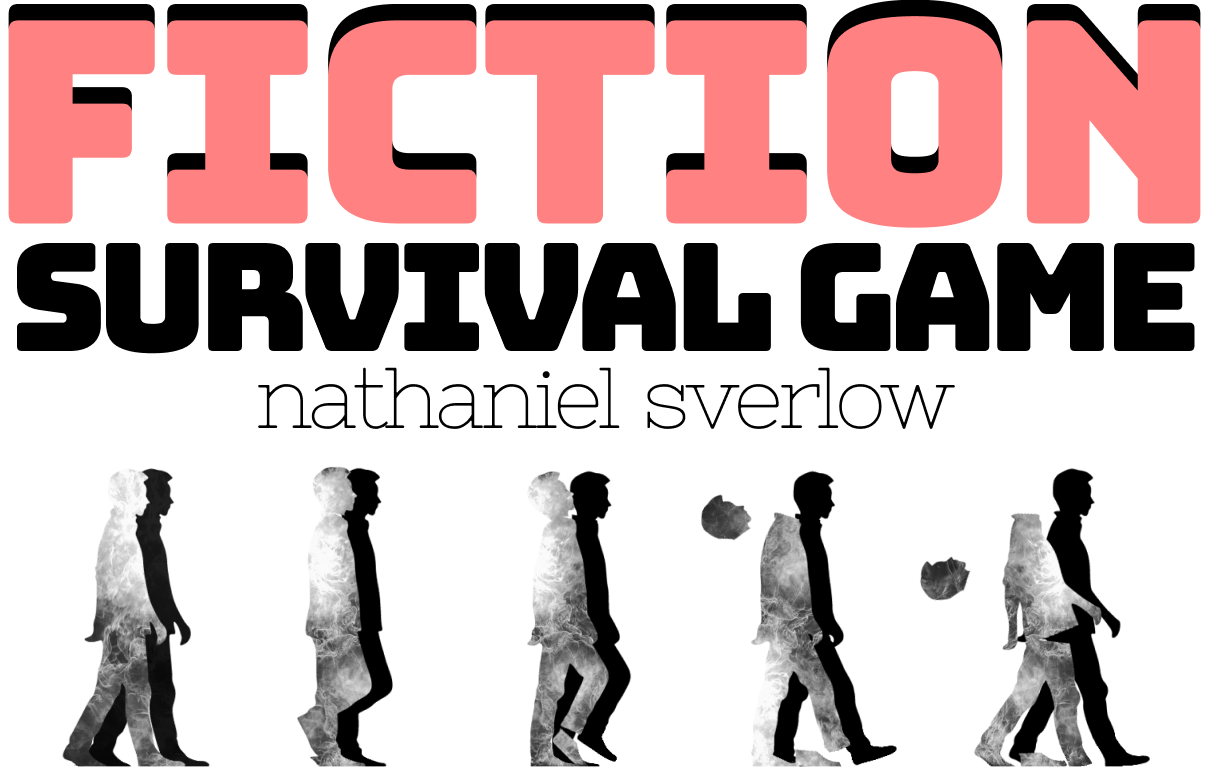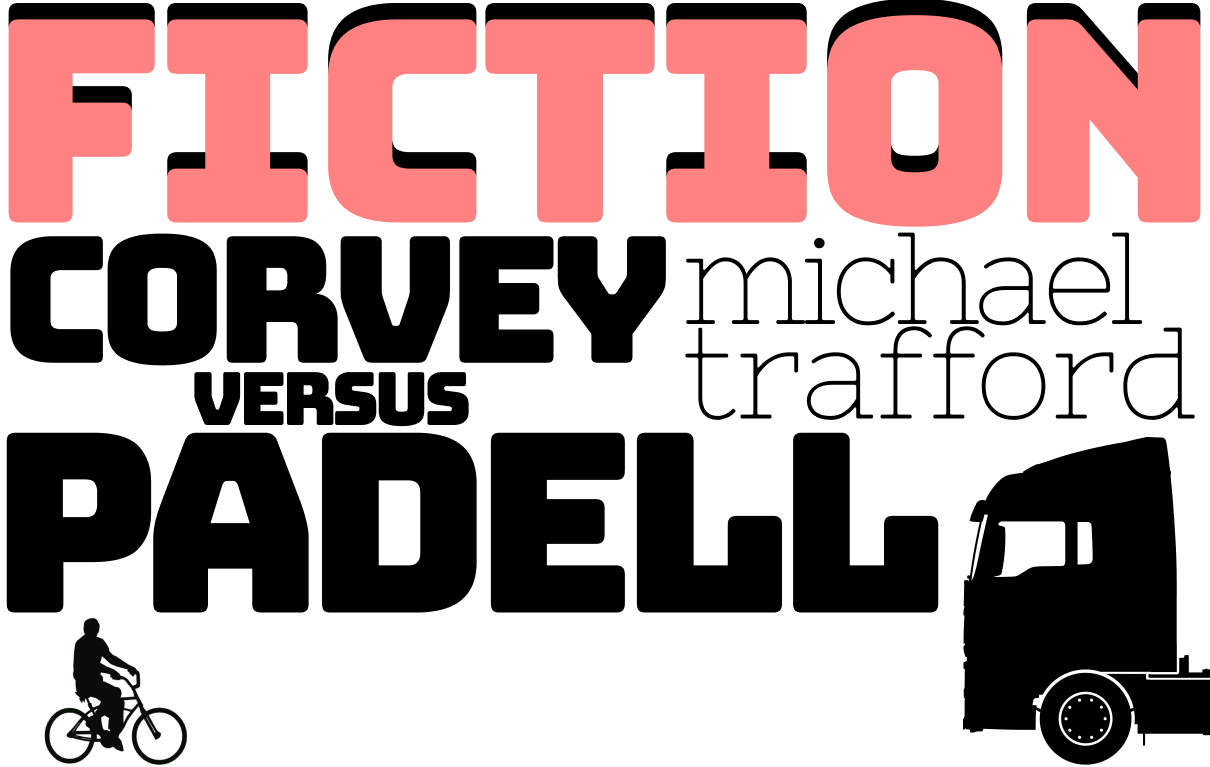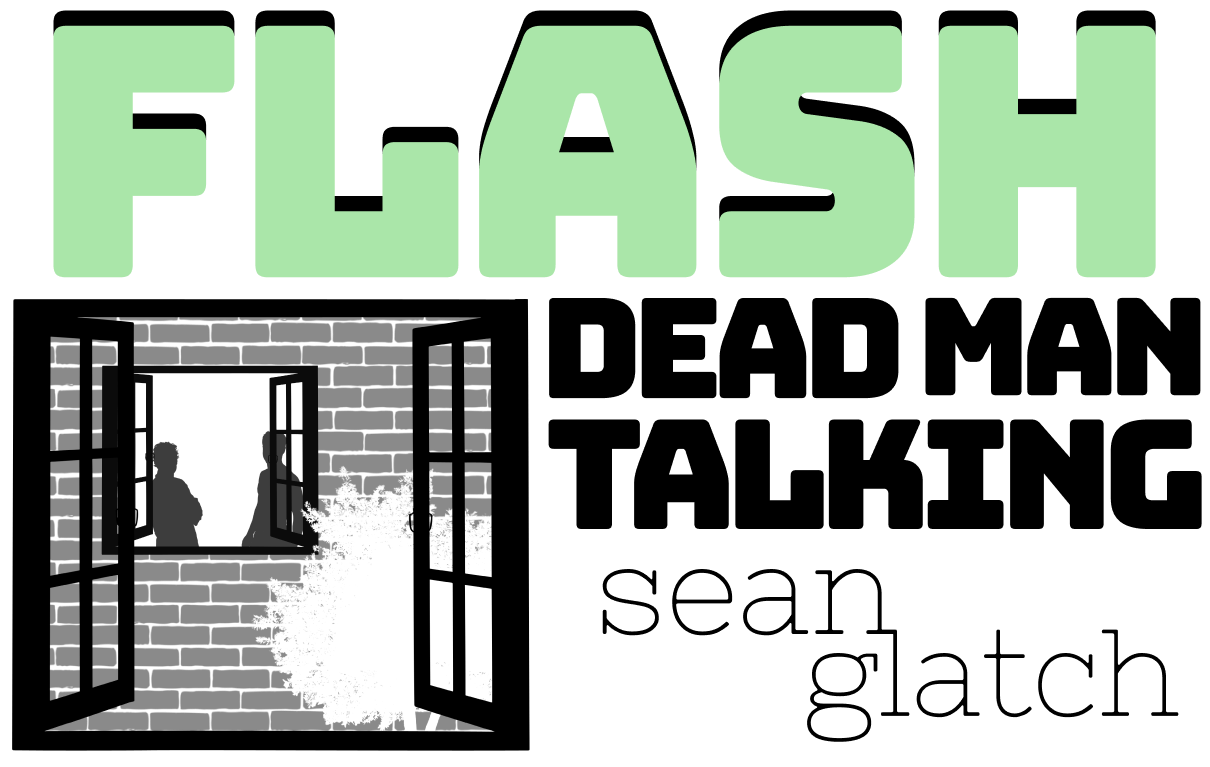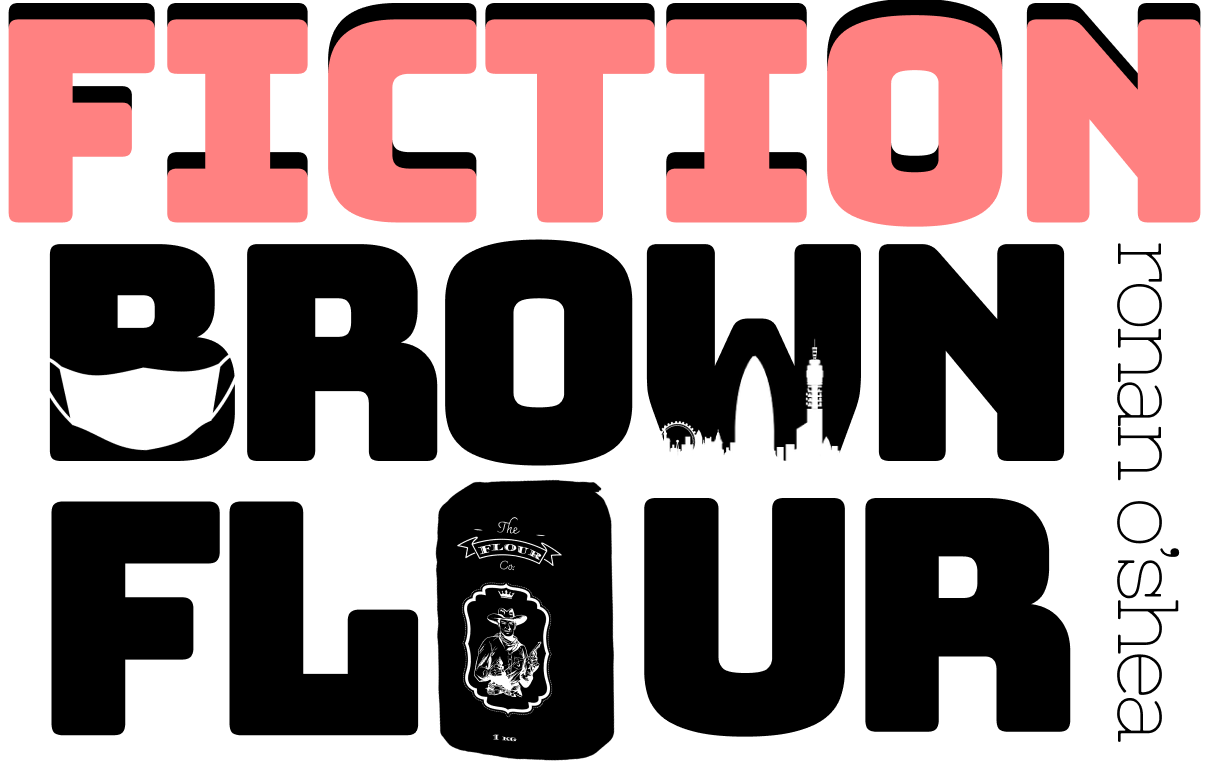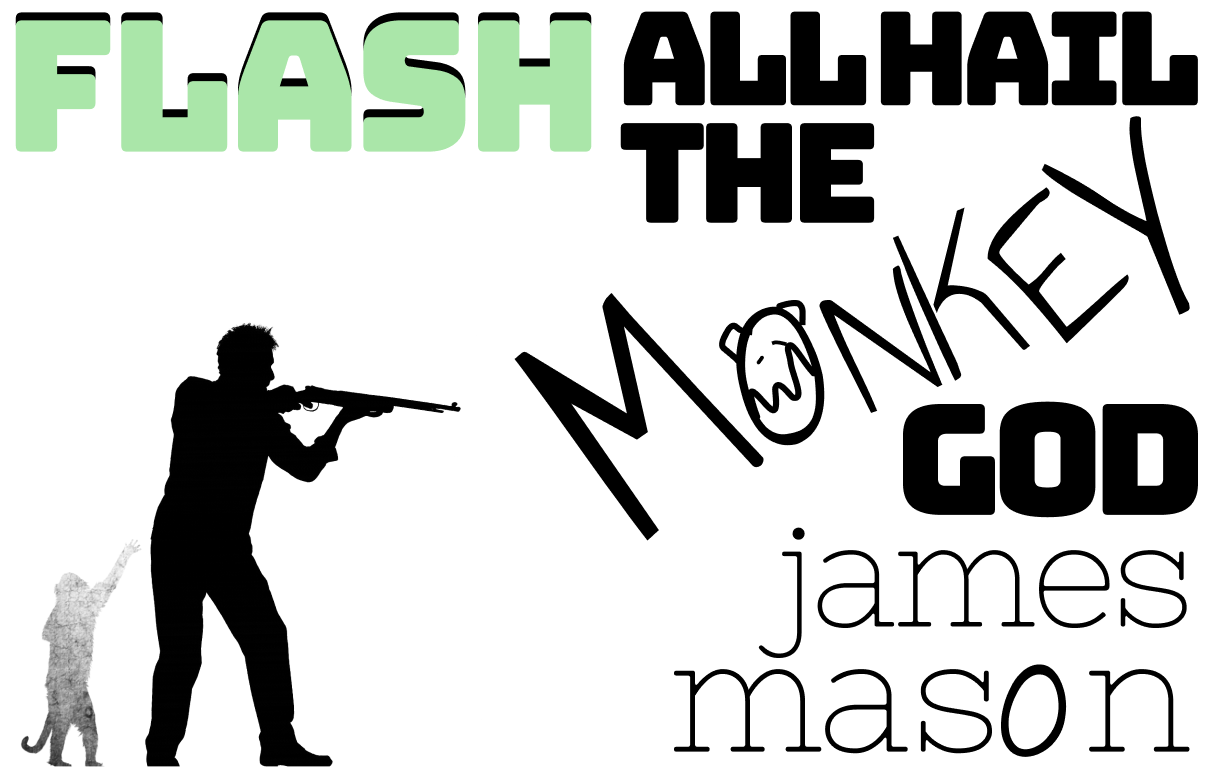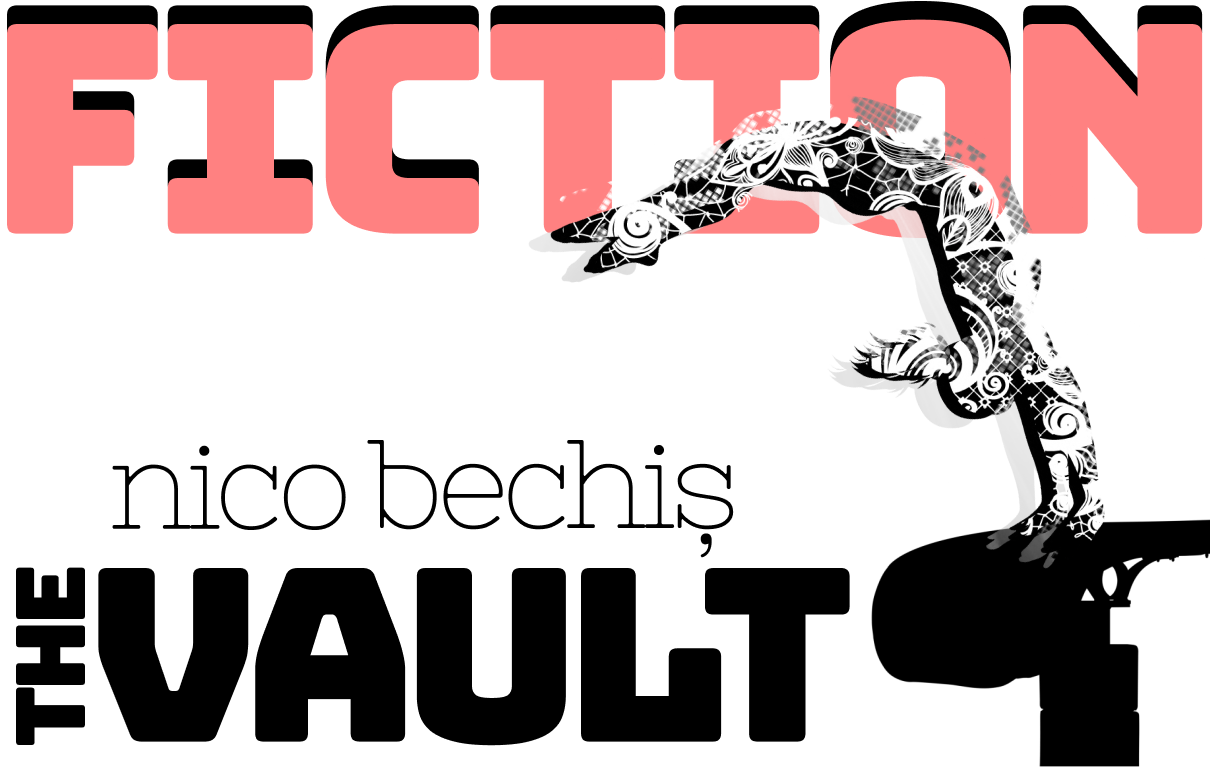
The Vault
The music leaked through the open door and sank into the carpet. With a slight gesture of the hand, Paula invited her client into the therapy room while she lagged behind just enough to breathe in and exhale deeply.
The client sat on the dark oriental chair while Paula zoomed through the registration form. Emily Brown. Delta St, Los Angeles, CA. No allergies. Back problems. Low blood pressure. No pregnancies. No migraines. Dry, sensitive skin. Body concerns. Poor circulation. Lumbar pains. Massage pressure: deep. How would you like to feel after your treatment? Blank space. Consent and agreement. Scribble. Date. August 12th, 2013.
Emily had beautiful, prominent clavicles that glowed briefly in the light of the candles. Paula kneeled in front of the washing basinet and asked Emily to soak her feet in the warm water. Was the temperature good?
‘Yes,’ said Emily in a ragged, cluttered voice, then coughed and said it again. The word vibrated for a while before the taiko drums in the speakers drowned it.
Paula scattered dried rose buds into the bassinet, then proceeded to wash Emily’s feet. The skin on Emily’s shins tightened as if she was suddenly cold, but then she relaxed and exhaled over the small concentrical crests in the water. Paula cleared the soap from Emily’s feet, rinsed the spaces between the toes, and dried them with the warm towels she kept on her lap.
In her mind, Paula searched for English words to put Emily at ease, but she remembered Emily’s hoarse, unwelcoming voice, and remained silent. She dried her hands before helping Emily put on the disposable slippers, then prepared to get up. A brief electric current surged through Paula’s lower back as she stood, the white towel curled to her chest, the warmth from the washing basinet damping her hairline. She smiled blindly in the client’s direction.
Emily looked troubled and uncomfortable, and Paula invited her to lie face up on the massage table. She gently pulled the towel over Emily, then caressed her through the rough cloth, stopping here and there to apply pressure on the meridians. Emily brought the hem of the towel up to her chin, and Paula smiled at this childish gesture.
There’d been a time when Paula, too, had brought the hem of a rough blanket over her nose to fence away the somber sight of the dormitory, the rusty white bars from the empty beds, the shadows. She’d arrived a day too early to the gymnastic camp in Deva, eager to quickly fulfill her dream and win the golden Olympic medal. Her mother had returned that very day to Bucharest, leaving Paula on the stairs of the dormitory as the car moved away. For a while her mother’s blue sleeve had flapped along the line of chestnut trees.
Emily waited with her hands on her womb. Paula rubbed her palms vigorously and placed them over Emily’s, then pressed slowly but firmly. A wave of white heat washed over Paula as Emily opened her mouth to let go of the air. With her hands still laced with Emily’s, Paula moved back and forth, quicker and quicker, until the movement penetrated the slick membrane that separated the two of them, and, for a while, they moved in unison as if traversed by the same current. The pain came to Paula through her hands, heavy and shapeless and deep, and Paula observed it as it rushed through her bones in search of a place to clog.
The colors of autumn had washed away from Deva almost as soon as Paula’s mother left, and the greyness that seemed to be the very substance of the city stretched far into the month of May. Every week, Paula would go to school and to training, and on Saturdays, she would speak to her mother on the phone in the secretary’s office. Her mother would tell Paula to behave and always try her best because soon Paula would go to the Olympics, and mother would join her there. She’d buy a small photo camera and sit very close to the podium, and when the judges gave Paula ten in a row and the golden medal, her mother would be right there, taking pictures. But until then, Paula had to impress her coach and listen to him because he, and he alone, would take Paula where she wanted to go.
It was easy for Paula to listen to Mr. Carp, because he had a deep, vibrant voice, like a trombone. His words seeped through her pores, and her muscles obeyed him before her mind understood his instructions. Move. Arch. Faster. Bend. Flex. Repeat. Again. And again!
The Zen music in the little massage chamber gave way to the sounds of rain rapping against a tiled roof. Paula began the effleurage movement over the left thigh and the hip, slowing down over the root of the toes, the knees, and the iliac crest, and again Emily responded with faint throbs.
Paula’s body had started to hurt when she was twelve. They had just moved from the foam pit to the runway and horse, training on the Yurchenko vault with Mr. Carp: a new, complicated manoeuvre, especially the round-off, where the smallest slip could send you sailing backwards, head first into the horse. It was during her second take-off, when she had just left the springboard, flying backwards with her chest wide open, and the spine arched like a ribbon, that the pain first sparked. It lasted less than a second, already gone by the time she landed on the sponge, almost too small to be crushed. Mr. Carp prescribed her three sessions of physiotherapy followed by massage, every week, and her mother, who couldn’t at the moment come down to see her, sent glucose and vitamins and calcium tablets from Bucharest and said it was only natural; Paula was growing; when she was fully developed, the pain would stop.
She was sent to the camp’s therapist, a man with blind, dirty eyes and limp flesh hung loosely over the bones. He was sitting on the therapy bed, with his eyes closed and his hands laced in his lap when Paula got there. The wall behind him was painted white, but the light that crept through the window smeared it with grey. There was no furniture in the room, only the beds with white oilcloth mattresses and a small wheeled table, where the masseur kept the electrotherapy machine and the massage oil that smelled of nothing.
Paula told him she was there for lumbar therapy and did her best to avoid staring at him. His eyelids were shut over the sharp curve of his eyes that looked like gymnastic balls ready to roll out of their sockets if he wasn’t careful. The masseur pointed his finger towards a place on the bed, very close to where he was sitting, and told her to lower her trousers and take off her shirt. She did as she was told, careful to keep her back towards both him and the entrance.
The first session was awkward. Two sets of small blankets inflicted electrical currents into her skin and her muscles, generating contractions that poked at the ball of pain in her spine. The blind man stood by the bed, looking nowhere.
She tried to channel her thoughts away from the therapy room and the pain to the national team, Mr. Carp, the sequence of steps leading to the cartwheel in her Yurchenko vault, the pre-flight section when she needed to shift her center upwards, away from the horse, to her mother. But one after the other, the thoughts drifted and finally collapsed into her spine.
She roamed the room with her eyes, searching for a clock, but the walls were bare, and the murky light was too weak to cast any shadow. Although the room was empty, and there was no one waiting in the corridor, the masseur drew a white curtain around her bed. A year might have passed before the physiotherapy machine stopped, and the masseur raised the cuffs of his sleeves to feel for the bottle. A drop of oil fell on his tunic, gliding down towards the woolly trousers that bagged around his knees, but he didn’t notice and continued to grease his hands. When he finally pressed Paula’s lumbar, it seemed that his touch, heavy, warm and reassuring, had a power of its own that had nothing to do with the blind man himself. Nor was it explicitly aimed at Paula. But it reached somewhere farther, deeper, as if she wasn’t the receiver, but the channel.
When the nature sounds in the speakers were replaced by the drone-like, rhythmic strokes of a piano, Paula asked Emily to turn on her belly while she held the towel between them, like a curtain. She filled her hands with frangipani oil and brushed the skin over Emily’s soles, starting from the heel, paying particular attention to the inside of the foot. She began with a gentle twist, then squeezed the feet in her palms and rubbed the arch, and finished by pulling the tips of the toes to align the meridians. The pain that came through her hands traveled upwards, along the tunnels in Paula’s arms and clavicles.
She continued to train every day with the others, but soon Mr. Carp moved her from first place in the line of gymnasts to the middle, behind Lavina, whose face was red and freckled, and Paula should have been devastated, crying, imploring. Yet, at the time, the only thing she could focus on was Mr. Carp’s voice, his dusky hard voice spinning inside her like the hands of a gymnast on the uneven bars. The more the voice swirled inside her, the more afraid she became that she would lose it, that the coach would see through her, deep to the hideous pain, to the dirt that was spreading all over her body, to her rotting spine.
Every day, she would run to the physiotherapy sessions while the other gymnasts were doing their homework, and she would watch the shadows folding over the white curtain for longer and longer stretches of time.
Her conversations with the masseur were limited. She knocked on the door and said her name, and he laughed and told her to undress and lie on the table. He had asked for a new physiotherapy machine, with a single, thicker blanket that covered all of her lumbar region and part of her buttocks. While she removed her T-shirt and lowered her pants, he set the timer on and warmed his palms. And for a long while, the crick-crick-crick of the timer and their breathing were the only sounds.
‘The pain never leaves the body,’ the masseur would say. ‘You must learn to use it.’ Then, he searched with his fingers for the nodules of pain, first over the shoulder blades and the back of the neck, then lower, into the lumbar region. He kneaded and pressed and encircled her muscles until his breath became raspy, and his sweat trickled from his forehead onto his hair and his eyelids and down onto Paula’s back. And when he moved down to her buttocks and her thighs, the saliva in Paula’s mouth thickened.
She continued to work on the knot in Emily’s back, forcing her mind to penetrate the skin barrier, traveling deeper and deeper into the epidermis, looking for blood, trying to pump as much oxygen as the capillaries would bring her, urging Emily’s flesh to warm and help with the healing. The pain thronged down Paula’s back.
Sundays had usually been the grimmest because on Sundays, Paula got to see Mr. Carp only once and even then, just briefly, in his office. On Sundays, the training was conducted by Mr. Florea, Mr. Carp’s second, and Mr. Carp sat at his desk with the thick yellow folder waiting in front of him. The pen, green with a golden ring in the middle, sat next to the folder while Paula took her seat. Mr. Carp asked for Paula’s name, just for the record, and wrote the date, 12 February 1984. Four months before the Olympics. He used small, precise letters that glinted for a second, and Mr. Carp waited for them to dry before he asked for the parents’ names and occupations, although he knew perfectly well that Paula had only her mother.
‘Secretary.’
‘Counter-revolutionary activities?’
Paula shook her head.
‘Anything suspicious the Party should be informed about?’
Paula shook her head again, but this time, Mr. Carp didn’t look at her, and Paula had to say in a loud, clear voice, ‘No, nothing to declare.’
Then Mr. Carp’s pen scratched the paper, insisting twice or three times on the ‘no’ while Paula held the door for Lavinia to enter.
She pressed her knuckles against Emily’s back. The flesh was soft and welcoming, apart from the nodule where the pain resided. She felt her own muscles tightening at her back, where the pain had reached the lumbar region, a sharp and familiar cut.
One night, she awoke with a disgusting, rotten taste brought by the pain. The lights were off, but an eerie glow drifted in the room as if pushed back and forth by the breaths of her roommates. It must have snowed while she had slept because the air was stiff, and a new uneasiness filled Paula’s chest. She pushed herself to the edge of the bed and further into the dormitory. The lights were off in the corridor, and a frozen breeze scrubbed at her skin. She walked to the window at the end of the hall in a trance, pulled by the breath of the snow and the response to it in her body. She stopped for a moment to put her head down and press the tips of her fingers onto her eyelids, the way she’d seen the blind man do it.
Something creaked at her left, and Paula saw Mr. Carp’s head tilting in the space between the door and the wall. She opened her mouth, but she could produce no sound.
‘Sleep,’ Mr. Carp said, hunching his back as if he was trying to protect something hung on his chest.
Paula nodded but didn’t move, her eyes still hurting as she took in the stripes on Mr. Carp’s pyjamas, seeking an excuse.
‘Spine?’ Mr. Carp asked, and, grateful, she nodded, and Mr. Carp said, ‘Come,’ and, after a pause, he said ‘ointment’. Paula felt the pain at her back throbbing, as if he had just awakened it.
Mr. Carp’s bedroom had very little furniture, only the bed, a ragged wardrobe with one of the doors slightly unhinged, a chair, diplomas and pictures of a younger Mr. Carp, and a brown velvet curtain. The ointment tube lay on the bedside table next to a glass-painted lamp, in the shape of a fish. The fish had its mouth open as if gasping for air, and the light that came out of it made a yellowish circle onto the wall.
Mr. Carp pointed his finger to the bed, then to her blouse. He opened the lid and squeezed the tube. With her gaze glued to the circle of light on the wall, she lifted her blouse, trying to muffle the sound of her inhales. Mr. Carp’s hands were warm but rough, like her own hands, cracked from talcum powder. The unease in her chest traveled to the spine, shifting back and forth in the rhythm of his palms. With each movement, Mr. Carp’s fingers uncovered new patches of her body, scratched a new vertebra, a rib, a fragment of the shoulder blade. Part of her wanted him to stop immediately, afraid that the masseur would later discover the scratches, but something pinned her down, waiting, craving for Mr. Carp to lubricate her, not just the back but also her face, her head and her eyes. It was hard to keep her breath quiet, and the air became heavy with the sounds of her and Mr. Carp’s exhales. Back and forth, back and forth, with the pain goring deep inside her.
Emily was panting and moaning under Paula’s hands, her body responding automatically to Paula’s touches, arching and bending unnaturally to increase the span of their contact. Paula herself was afraid to let go, and she continued to work for a long while, longer than necessary, and the pain at her back continued to throb, sending vibrations that washed over Paula, Emily, the therapy table, and the walls, swelling with each inhale and contracting with each exhale, like frost and thaw in the rivers, like a mother’s hand waving steadily before the curtains are drawn.
Mr. Carp hadn’t reached out to her until after Bill Clinton visited Romania, after the fall of the communists. It was the height of the summer, and Paula recognized his voice immediately, the familiar cadence broken by the distance and the static, saying he was sorry for her loss.
‘Thank you,’ she said, and stared at the lights that travelled the darkness on her wall with the speed of the passing cars. Suddenly, the distance that separated Paula from her mother’s death solidified. Destitution, prison, lung cancer. The pain at Paula’s back stirred, gathering strength from the warmth of the bed, pulsing.
So many miles away from her, Mr. Carp breathed, and the words tumbled out of his mouth and into Paula’s ear. ‘I thought you’d come back after the Revolution,’ he said, and she left her head drop onto the pillow and felt reassured, almost glad of the distance that separated them.
The soft chime in the speakers meant that the massage session was coming to an end, and Paula’s mind drifted towards the tasks waiting at home. Scrub the bathroom, cook dinner, apply ointment. She slid her palms over Emily’s back, one last scanning for dangerous lumps of pain, then covered Emily with the towel. The air travelled upwards from Emily’s skin, as if her entire body had let out a deep exhale. The frangipani oil smelled different on Emily, more rarefied, almost salty, as if it had been mixed with the air above the sea. Paula held her breath, trying as best she could to avoid it, and almost blurted out loud that it’s all an illusion, we’re never free. With rapid movements, she tidied the folds of the towel, and travelled her hands from the lumbar to the first cervical vertebra, to the heels, for one last stretch. Finally, she lifted her palms and brought her hands into prayer, and diverted her thoughts to the pain locked at her back.
In the year that followed Mr. Carp’s first phone call, the Romanian Olympic Committee flew him to LA and Mr. Carp invited her for dinner. They ate at the hotel’s restaurant on a curved sofa upholstered with artificial leather, and Mr. Carp ordered a burger with fries and a beer. The years since she’d last seen him had amassed weight to his muscles and bones and sanded the lines on his face. They ate in silence, careful with their knives and forks, as if their hands were still covered in chalk. Beads of sweat had formed by the edge of Mr. Carp’s hair. She watched him wrestling with the burger, drawing his index finger every twenty seconds to push the gold-rimmed glasses back to the root of his nose, smiling uncomfortably whenever he looked at her. In person, he was less talkative than on the telephone, and Paula asked whether he planned to visit Vegas for a day or two after the conference.
‘Don’t like gambling,’ said Mr. Carp not looking at Paula but at the psychedelic wall behind her and then to the left, at the greying window. ‘Gambled only once in ’84, when I put you on the Olympic team, and almost got my chest burned,’ he added and the words remained hanging between them, like the tiny beads in his beer glass that gathered in a foam at the top.
To hide the sudden flush in her cheeks, she asked him if he wanted any dessert, but he declined and produced a box with rum chocolates wrapped in the Romanian flag. They asked for the bill, and Paula paid, and they got in a taxi and there was a moment of silence after the driver asked where to, but then Mr. Carp said, ‘Home!’ and Paula didn’t say anything. Only her spine arched on the backseat of the car as she struggled to recite her address.
She waited in the corridor for Emily to put on her bathrobe, gather her things and leave. There was little oxygen left in the room, with a strange, stale smell to it, and Paula pulled the curtains aside to open the window. It was a large window, as large as the wall, leading straight into the spa’s back garden where the last of the afternoon sun was glowing onto the palm trees, the yellow poppies and the grass. Later she would have to stop by the shop to buy bleach and carrots and beer for Mr. Carp, and maybe a bottle of wine for herself.
She gathered the towels from the massage bed and dusted the mattress. The leather was still warm, and Paula looked down at her hands covered in a thin layer of oil that smelled like Emily. It seemed hard to believe that Paula had once used those same hands to haul herself over the horse in an Olympic championship. She poked her fingers into the therapy bed to test its resistance, expecting, against her better judgement, to feel her skin tight from the talcum. She looked back and went to the door and opened it, and the corridor poured into the room like a dark runway. She took off her slippers and socks and measured the carpet with her feet. When she had reached the twenty-five meters, she drew a line with her toes, arched her spine and lifted her left arm, spreading her fingers like a fan, a gesture that had been distinctive for her generation of gymnasts.
In the distance, the light drenched the therapy bed in white and gold. As she was thrusting her arms upwards to prepare for the cartwheel, the bulk of her pain freed itself from the lumbar and drifted between the shoulder blades and farther, to the base of her skull, then spread down to her heels and her toes. But she was already pivoting.
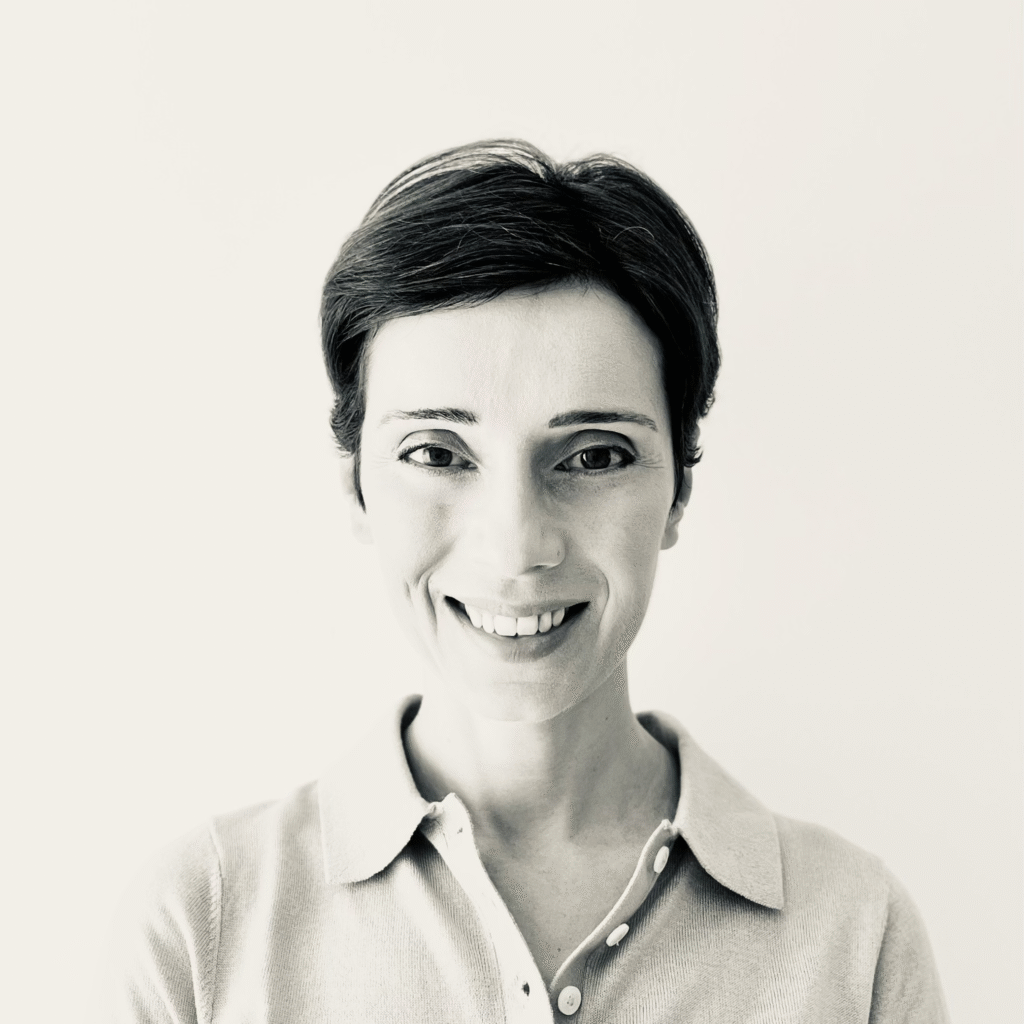
Nico Bechiș
Nico Bechiș is a Romanian writer living in London, where she crafts stories, drinks too much tea, and graciously loses at chess to her son. Her fiction has appeared in Tribuna de Cluj, Echinox, Story Sanctum, and often explores themes of power, memory, and the quiet revolutions of everyday life. She holds an MA in European Literature and is currently working on a novel about modern slavery.
Plus!
